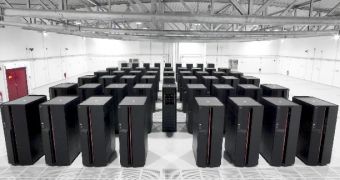Apple has revealed at its World Wide Developers Conference (WWDC) this year that Snow Leopard packs a technology which allows the OS to use the processing power of graphics processors for apps that don't focus on graphics. Khronos Group president Neil Trevett claims Apple's OpenCL is paving the way to the first portable supercomputer.
OpenCL is based on the C programming language and it has been proposed as an open standard, 9to5mac is reporting. Therefore, Apple has joined the Khronos Group to develop OpenCL as a standard. AMD, ARM, IBM, Intel, and Nokia had already joined the Group, the website notes.
From Apple's description of the newly announced Mac OS X Snow Leopard:
OpenCL
Another powerful Snow Leopard technology, OpenCL (Open Computing Language), makes it possible for developers to efficiently tap the vast gigaflops of computing power currently locked up in the graphics processing unit (GPU). With GPUs approaching processing speeds of a trillion operations per second, they're capable of considerably more than just drawing pictures. OpenCL takes that power and redirects it for general-purpose computing.
Talking about OpenCL, Apple's CEO, Steve Jobs, told the New York Times last week that "basically it lets you use graphics processors to do computation." Jobs added that their technology is "way beyond what Nvidia or anyone else has, and it's really simple." However, as the aforementioned source points out, both Nvidia and ATI are part of the standards-setting consortium.
Khronos Group has set up the Compute Working Group to carry out research on the ways to use the powerful capabilities of GPUs to their fullest. The aim is sharing computational tasks with the host processor.
Khronos Group president, Neil Trevett, said: "The Compute Working Group potentially will be one of the most significant standardization efforts at Khronos. Highly-accelerated parallel computation across GPUs and CPUs is essential to many emerging rich consumer applications that will transform the computing experience of diverse users."
The bombshell...: "Significantly, this initiative is aimed at both desktop and embedded devices - the day when you will be able to hold a supercomputer in the palm of your hand is perhaps not so far away," Trevett concluded.

 14 DAY TRIAL //
14 DAY TRIAL //